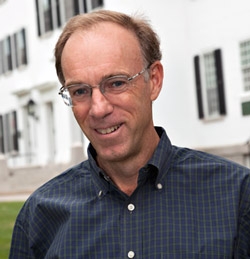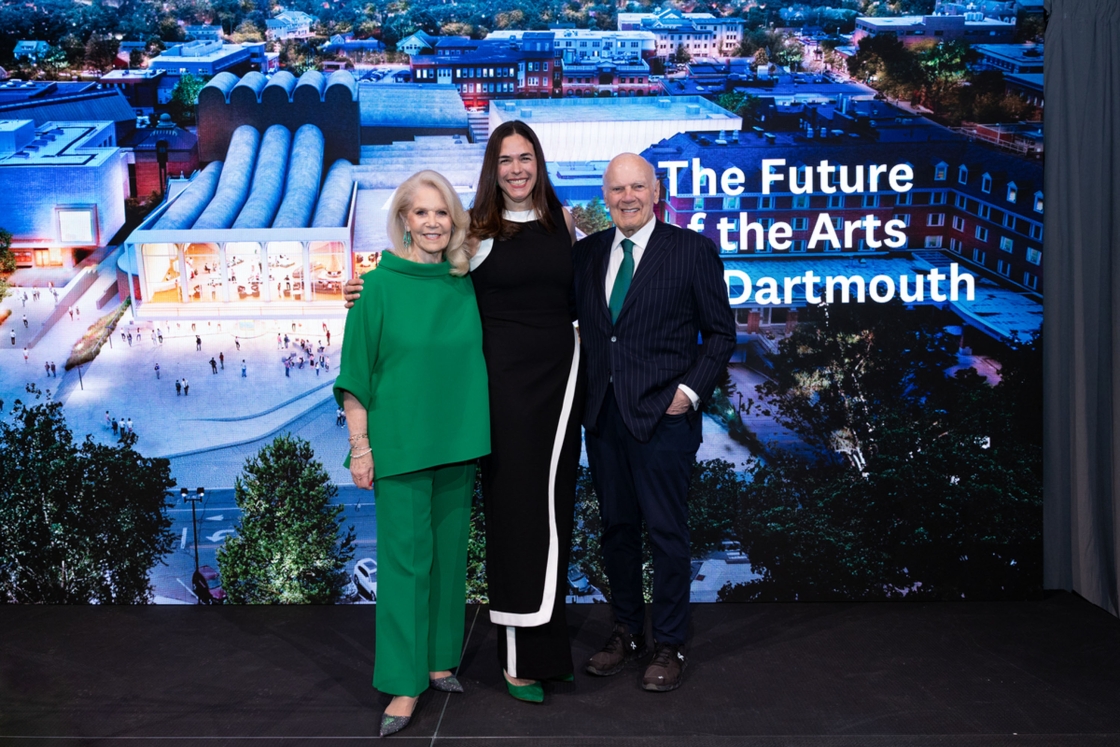
Steve Mandel Jr. ’78 is a true son—and grandson, brother, and parent—of Dartmouth, with family ties to the College stretching back to the 1920s. His grandfather Richard was a member of the Class of 1926 and his brother Ned is a Dartmouth ’81. Their late father, Steve Sr., was a member of the Class of 1952 and an active alumni volunteer.
Mandel himself has served as a volunteer fundraiser, member of the President’s Leadership Council, and co-chair of the successful $1.3 billion Campaign for the Dartmouth Experience. In 2007, he joined the Board of Trustees. When he assumed the role of Board chair in June 2010, the former Dartmouth squash player and Psi Upsilon member said, “I am excited about the opportunity to work with President Kim, my colleagues on the Board, and the entire Dartmouth community, in realizing an even greater future for this College that we all love.”
Mandel heads Lone Pine Capital, a money management firm he founded in 1997, which is based in Greenwich, Conn. He and his wife, Susan Zadek Mandel, who were MBA classmates at Harvard Business School, are known for their civic and philanthropic activities and support dozens of organizations. Two of their three children are in the Classes of 2009 and 2011. Dartmouth Life sat down with Mandel for a conversation following the Board’s November meeting.
What are your priorities as the new chair of Dartmouth’s Board?One is that the Board communicates better. We are making a real effort to communicate on a regular basis, mainly via email, and respond to questions. Another is that I want the entire Board to be more visible and accessible to the broad community. To the extent possible, we need to be at alumni events and get out on campus. For example, John Donahoe [president and CEO of eBay, Inc.] was here for a full day before the Board’s session this month, meeting with students and faculty and giving a presentation to staff.
In September, you sent an email to all alumni. Did anyone write back?Yes, about 500 people. Many of them said, “I’m really glad you are doing this.” Others wrote to share opinions on various matters. I wrote every single person back.
Can Dartmouth Life readers be in touch with you?Of course. Anyone can contact me at stephen.f.mandel.jr@dartmouth.edu.
Are there principles that have helped you be successful in business that you bring to the Board?I try to run things efficiently and make our meetings as productive as possible. One way we’re doing that is to structure every meeting around one topic. We always have various things that need discussion and votes. But strategically, we are only going to take on one major topic in depth at each meeting. At upcoming meetings, we plan to look at admissions and residential life.
Has the Board’s focus changed recently?We’re playing offense now. For a while, we were playing defense on governance issues and responding to the fiscal crisis. As I look out over the next year and a half, the strategic planning process that Dartmouth is beginning will be an important and exciting part of our work. As a Board, we need to make sure that we’re informed and involved in the process.
Your philanthropy is directed to many educational institutions and efforts. Why the emphasis on education?I think it’s the basis for everything, which is more true today than ever. One of the things that drove the U.S. to prominence over the course of the 20th century was having a strong public education system. As a country, we are now losing ground competitively in the world, in part because we are not educating our populace as well. We have ridiculous inequities in people’s chances in life that are purely a function of the zip code they live in. There is ample evidence that given the right school and the right teachers, all kids can achieve remarkably.
When you ask others to support Dartmouth, what’s your pitch?It’s the same concept, frankly, that Jim Kim often talks about. If you can produce thousands of alumni who are enormously capable, and you give them tools and the inspiration to want to make the world a better place, there’s incredible leverage in that.
What do you think motivates so many alumni and others to give their time to the College?They love the place and it means a lot to them. I think they are generally honored to be asked and are happy to help. As chair, I’m really grateful to have a Board where everybody takes it seriously and is willing to put in the time. I can call our Board members anytime, and they’ll always make Dartmouth a priority.
This story was co-authored by Bonnie Barber.
